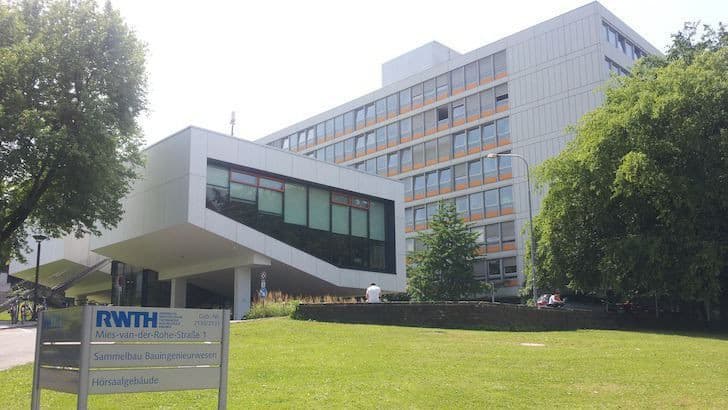Unlock Innovation: Top 10 Engineering Programs in Germany for International Students
Germany is renowned for its rich history of innovation, cutting-edge technology, and world-class engineering programs. As a hub for international students, Germany offers a unique opportunity to pursue a degree in engineering, unlocking innovative career opportunities and shaping the future of technology. In this article, we’ll explore the top 10 engineering programs in Germany for international students, highlighting their unique features, curriculum, and career opportunities.

Why Pursue an Engineering Degree in Germany?
Germany offers a unique advantage for engineering students with its strong economy, innovative industry, and stunning natural environment. An engineering degree from a German university can provide you with:
– A globally recognized qualification
– A strong network of industry contacts
– A unique cultural experience
– Access to a thriving job market
Top 10 Engineering Programs in Germany for International Students
Here are the top 10 engineering programs in Germany for international students:
1. Technical University of Munich (TUM) – Faculty of Mechanical Engineering: One of the top-ranked engineering programs in Germany, offering a wide range of specializations in mechanical engineering.
2. RWTH Aachen University – Faculty of Mechanical Engineering: A leading engineering program offering a wide range of specializations in mechanical engineering, with a strong focus on research and innovation.
3. University of Stuttgart – Faculty of Engineering: A top-ranked engineering program offering a wide range of specializations in engineering, with a strong focus on sustainability and innovation.
4. Karlsruhe Institute of Technology (KIT) – Faculty of Engineering: A leading engineering program offering a wide range of specializations in engineering, with a strong focus on research and innovation.
5. University of Berlin – Faculty of Engineering: A top-ranked engineering program offering a wide range of specializations in engineering, with a strong focus on sustainability and innovation.
6. Darmstadt University of Technology – Faculty of Engineering: A leading engineering program offering a wide range of specializations in engineering, with a strong focus on research and innovation.
7. University of Hannover – Faculty of Engineering: A top-ranked engineering program offering a wide range of specializations in engineering, with a strong focus on sustainability and innovation.
8. Braunschweig University of Technology – Faculty of Engineering: A leading engineering program offering a wide range of specializations in engineering, with a strong focus on research and innovation.
9. University of Erlangen-Nuremberg – Faculty of Engineering: A top-ranked engineering program offering a wide range of specializations in engineering, with a strong focus on sustainability and innovation.
10. University of Dresden – Faculty of Engineering: A leading engineering program offering a wide range of specializations in engineering, with a strong focus on research and innovation.
Germany offers some of the world’s best Engineering Programs in Germany, with a strong focus on practical application and cutting-edge research opportunities. With a diverse range of programs available, including mechanical, electrical, computer science, and aerospace engineering, students can choose from undergraduate and graduate degrees that are highly regarded worldwide. By studying engineering in Germany, students can gain hands-on experience, develop innovative solutions, and launch a successful career in their chosen field.

Frequently Asked Questions
Q: What are the admission requirements for engineering programs in Germany?
A: Admission requirements typically include a bachelor’s degree, German language proficiency, and a strong academic record.
Engineering programs in Germany have varying admission requirements.
International students must meet the language proficiency requirements.
Q: How long does it take to complete an engineering program in Germany?
A: Most engineering programs in Germany take 3-4 years to complete for a bachelor’s degree and 1-2 years for a master’s degree.
Some programs may offer part-time or online options.
International students can choose from various program formats.
Q: What are the career opportunities after completing an engineering program in Germany?
A: Engineering graduates from German universities can pursue careers in top-tier companies, startups, and entrepreneurial ventures.
Engineering programs in Germany offer strong career support.
International students can leverage Germany’s global industry network.

Conclusion
Pursuing an engineering degree in Germany can be a transformative experience that unlocks innovative career opportunities and shapes the future of technology. By considering the top 10 engineering programs in Germany for international students, you can make an informed decision about your future. Remember to research thoroughly and plan to ensure a smooth transition to your engineering journey.
Additionally, Germany’s relatively low tuition fees make it an attractive destination for international students. The country’s unique cultural diversity also provides students with a chance to learn from people from diverse backgrounds. Furthermore, Germany is home to many top multinational companies, offering excellent job prospects after graduation.
By studying engineering in Germany, students can also develop valuable language skills and networking opportunities, setting themselves up for success in their chosen career. The country’s strong industry connections also provide students with opportunities to collaborate with professionals in their field, gaining valuable insights and experience. Overall, engineering programs in Germany offer a unique combination of academic excellence, practical experience, and career opportunities that can help students achieve their goals and succeed in their chosen field.
APPLY NOW FOR CONSULTATION.


